+
Health Information
+
Clinics, and Pharmacies
• Clinics
Don Khone – Local Health Center, a public medical center that provides primary health care, and vaccines.

Nakasang – ລາຍການກວດ, a public medical center that provides primary health care, can do blood tests, and vaccines.

• Pharmacies
Don Det – Keolampho Osotho, Homeopathic pharmacy. minor injuries, basic pharmaceuticals, antibiotics, plasters, vitamins, etc. (listed on map)
There are several Pharmacies in Nakasang that carry basic pharmaceuticals, antibiotics, plasters, vitamins, etc. (listed on map)
Hospitals, Thailand
By regular transport from Nakasang, leaving around 11:30, you arrive in Ubon at approximately 18:30. 275 Km (171 miles)

Sunpasitthiprasong Hospital is the main hospital of Ubon Ratchathani Province, Thailand, and is classified under the Ministry of Public Health as a regional hospital. The same doctors at the more expensive hospitals have to donate time to working at this hospital. Open 24 hours with emergency services. The care is good and they have English speaking staff including a dedicated Expat Liaison coordinator, Kalone +66 (0) 94 987 8266
Address: 122 Rd Sappasit, ตำบล ในเมือง Mueang Ubon Ratchathani District, Ubon Ratchathani 34000, Thailand
Hours:
Open 24 hours
Phone: +66 45 319 200
Beds: 1,188 Inpatient Beds
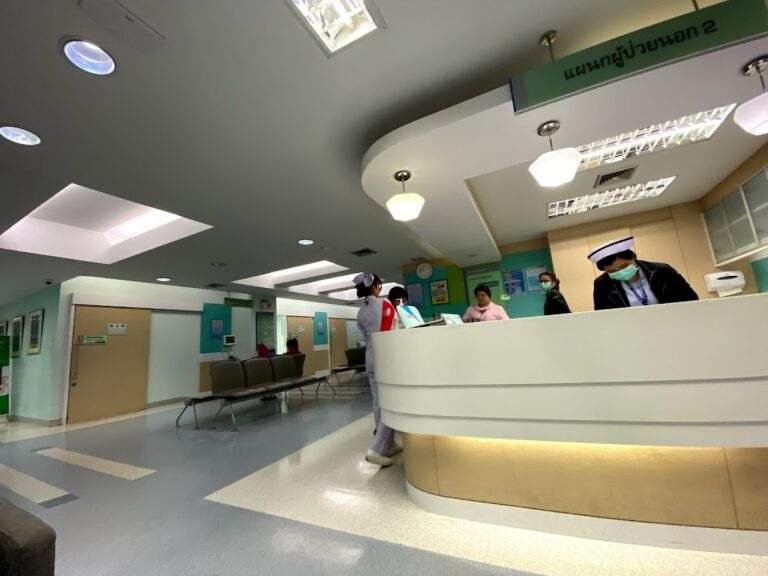
Ubonrak Thonburi Hospital
A full western hospital facility used by many of the ex-pats in the region. It is part of a larger chain of hospitals under the name of Thon Buri medical services. The hospital opened in 1996, and provides medical care to residents of Ubon Ratchathani, surrounding provinces of Thailand, Laos and Cambodia.
Address: 46/4 Buraphanai Rd, ตำบล ในเมือง Mueang Ubon Ratchathani District, Ubon Ratchathani 34000, Thailand
Hours:
Open 24 hours
Phone: +66 45 429 100
Beds: 100 Inpatient Beds
Hospitals, Laos
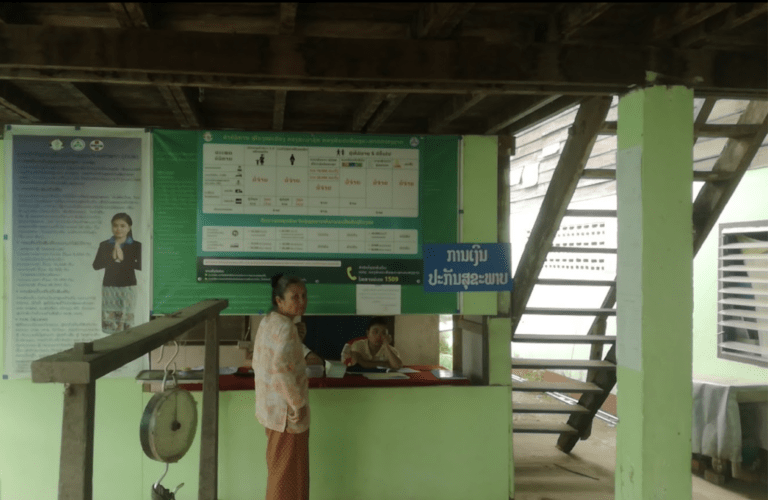
Muang Khong Hospital (or ໂຮງໝໍ ເມືອງໂຂງ) is the closest hospital located on the “big island” of Don Khong. About 20 Km (13 miles) or 31 minutes from Nakasang. The quality may not be up to international standards but could probably take care of most problems you might encounter on the islands.
The following options are in Pakse, 145 Km from Nakasang. In case of a severe emergency, Your guesthouse can arrange transportation, but it is still a 2+ hour drive.

The Pakse Public Hospital is not expensive, but the quality is also not up to international standards; they do their best. They can do blood and urine testing. No English or translators. Open 24 / 7
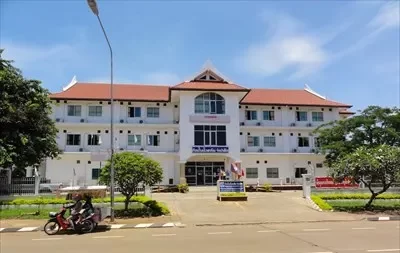

the International Poly Clinic has been modernized over the last few years.
Now offering modern facilities for Blood tests, 5D HD live ultrasound, gastroscopy, colonoscopy, ENT, colposcopy, x-ray, CT scanners, vaccinations for adults and children, Obstetrics, surgery, percutaneous nephrolithiasis, retrograde lithotripsy.
Department of surgery: Caesarean section, bone surgery, digestive surgery, urology.
With 2 operating rooms: open surgery and laparoscopic surgery.
Some English,
Beds: 50 Inpatient Beds
Private and shared rooms
Open 27/7
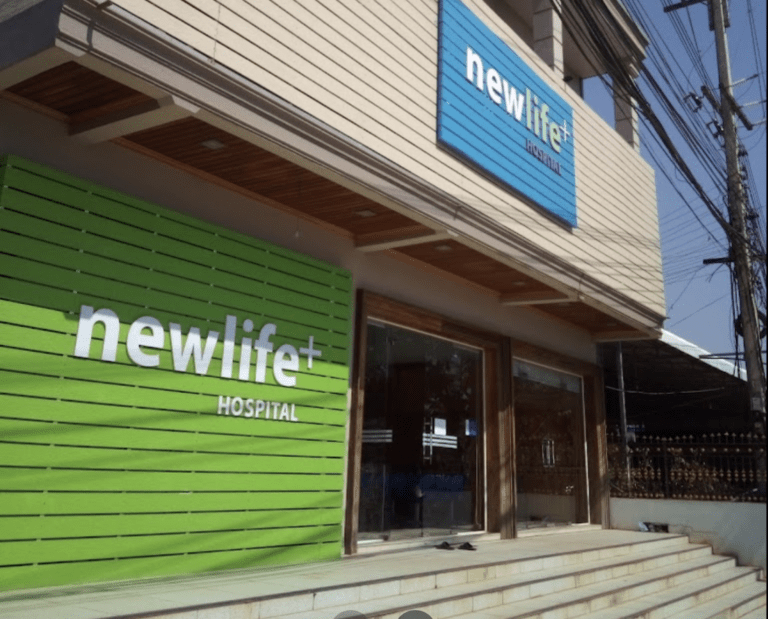
New Life (Vietnam Clinic) is well staffed, with modern testing facilities including MRI, CT scan, blood and urine testing. Occasionally an English speaker in house, sometimes translators via telephone.
Address: Road #13, ban Phonsaart, Paksé, Laos
Opening Hours:
Monday thru Saturday: 08:00 – 19:00
Sunday: 08:00 – 17:00
Ambulance to Thailand

Ambulance Pakse to Chong Mek Border, two phone numbers:
Ambulance Pakse: 030 49 12 875 or 030 50 34 395
Emergency Hotline: 1623
A Thai Ambulance will pick you up, make a stop at Sirinthorn Hospital for Triage and then will either take you to Sappasith Government hospital in Ubon [Ratchathani] or Ubon Rak (private). Depending on your request and your condition and who can treat you better according to medical equipment needed.
Diseases & Prevention

• COVID-19
Make sure you are vaccinated and up to date with your COVID-19 vaccines before traveling to Laos. If you are not up to date with COVID-19 vaccines, avoid traveling to Laos. While the official number of COVID-19 infections is low, this is probably due to the under-reporting of infections.

• Mosquito Born Diseases
Malaria
Malaria is a potential risk, particularly during the rainy season.
The CDC suggests, along the border with Burma (Bokeo and Luang Namtha Provinces); along the border with Cambodia; along with Thailand (Champasak and Salavan Provinces); and the border with Vietnam: CDC Recommended chemoprophylaxis, Atovaquone-proguanil, doxycycline, tafenoquine4. All other areas with malaria transmission: Atovaquone-proguanil, doxycycline, mefloquine, tafenoquine4
Dengue
Dengue fever is a risk in many parts of South East Asia and the Pacific Islands, particularly during ‘rainy season’.
There is no chemoprophylaxis. See prevention below.
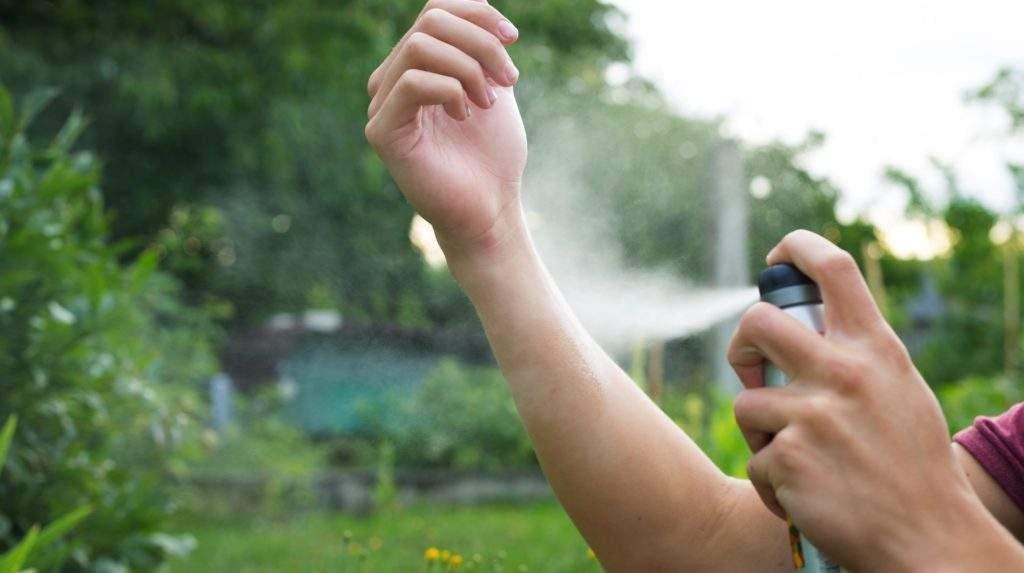
• Prevention
Travelers to 4000 Islands can protect themselves by preventing mosquito bites.
The “gold standard” is DEET, which should be applied directly to the skin while keeping it away from the eyes, ears, and mouth. Any place on your exposed body is fair game, so you’ve got to be thorough.
Picaridin is another effective DEET alternative and is popular because it’s lighter and barely smells.
For those who want a natural repellent, the oil of lemon eucalyptus has been recommended by the Centers for Disease Control.

Schistosomiasis (bilharzia)
Not to upset you or freak you out, but this is something to be aware of. Schistosomiasis, also known as bilharzia, is an infection caused by a parasitic worm that lives in fresh water in subtropical and tropical regions. The infections we have seen come from the snail shells in the water called “Hoi”, a popular food item for the local people. The infection can be easily treated with a short course of medicine, so see your GP if you think you might have it.
These pages have good information.
https://www.cdc.gov/parasites/schistosomiasis/index.html
https://www.nhs.uk/conditions/schistosomiasis/